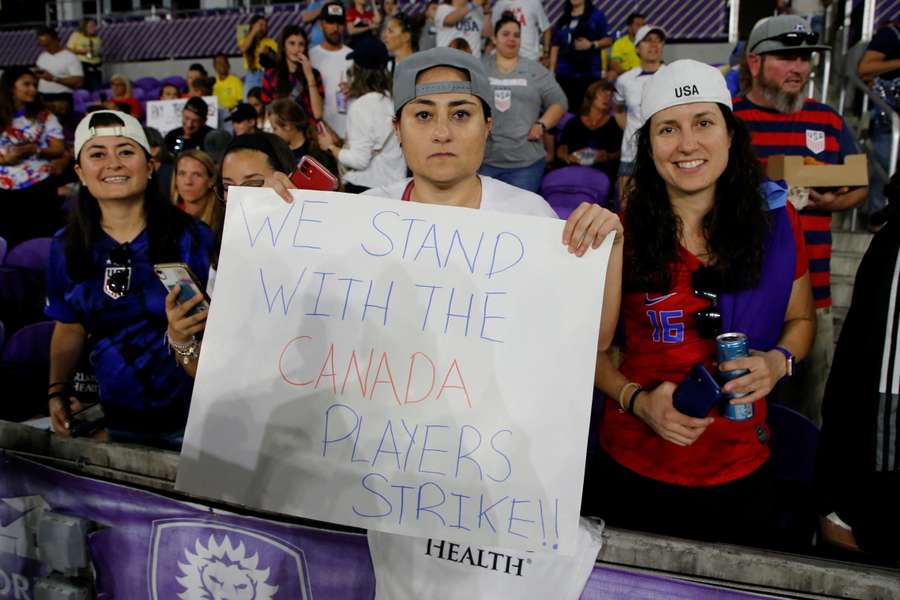Winds of rebellion blow through women's football ahead of World Cup

In France, a revolt by some of the country's top players, led by captain Wendie Renard (32), led to the sacking of coach Corinne Diacre (48) on Thursday.
Canada's national team threatened to go on strike in a row over pay, funding and contractual issues.
Meanwhile, 15 members of Spain's squad decided in September to withdraw from international duty, calling for major changes, including the departure of coach Jorge Vilda (41). He remains at the helm.
Jonas Baer-Hoffmann, the general secretary of global footballers' union FIFPro, said in many cases the leadership of the sport was lagging behind the aspirations and achievements of women players.
"Whether it is the players' own conditions and economic support, the coaching environments, the lack of professional structures in their federations and leagues - they don't match what is asked and delivered by the players on the pitch and to grow the sport," he told AFP.
"No player should have to sacrifice a part of their career to achieve what they are asking for and it shows how unresponsive the leadership in many organisations still is to truly commit to women's football."
Stars to miss World Cup?
Players from France, Canada and Spain are not the first to agitate for change.
Ada Hegerberg (27), the first-ever winner of the women's Ballon d'Or, withdrew from the international scene in 2017, citing concerns over the inequality of treatment given to men's and women's teams by the Norwegian federation.
The United States team, led by superstars Carli Lloyd (40), Megan Rapinoe (37) and Alex Morgan (33), filed a complaint against the US federation alleging wage discrimination.
Their fight eventually led to a landmark collective bargaining deal last year which would mean the US men's and women's teams evenly sharing World Cup prize money paid by FIFA.
Morgan offered her support to the French rebels on social media.
"You know it's serious when the most capped player/skipper can't support or play" for France, said Morgan, an ex-teammate of Renard at French side Lyon.
It is striking to see so many rebellions taking place so close to the World Cup, which kicks off on July 20.
The possibility that some of the biggest stars will not feature in Australia and New Zealand is "a very real threat", according to Baer-Hoffmann.
"We hope that those with the abilities to change those circumstances don't feel like this is a power play to fight over but see that the protest comes from a place of a genuine desire to improve the game, make it accessible for all."
Spanish B team
In Canada and in France, the rebels have won out.
Diacre was dismissed on Thursday, while Canada Soccer president Nick Bontis recently resigned, admitting change was needed at the top of the organisation.
Canada Soccer has since proposed an equal pay deal that it said will make their women's team the second best-paid in the world.
Yet both disputes have left a mark, with Renard speaking of concerns for her mental health.
Christine Sinclair (39), Canada's all-time top scorer, told a government hearing that she had "never been more insulted than I was by Canada Soccer's own president last year, as we met with him to discuss our concerns".
In Spain, however, there is no sign of a return for the players who quit after the Spanish Football Federation backed Vilda.
He has therefore effectively called up a B team for recent games, although top scorer Jennifer Hermoso (32) has made a comeback.
Yet uncertainty surrounds star player Alexia Putellas (29), who is still recovering from a serious knee injury.
Putellas, who won the Ballon d'Or and The Best FIFA women's player for 2022, has given her backing to the Spanish rebels, so it remains to be seen if she will return to the squad when fit.
"It is a problem that is becoming widespread. The players don't have the possibility to give their best. We have to fight every day to try to improve things," Putellas said in an interview with beIN Sports.
